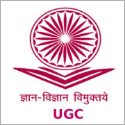Preparing for German Language Exams: Strategies for Goethe, TestDaF, and TELC
If you plan to take a German language exam such as the Goethe-Zertifikat, TestDaF, or TELC, you may be overwhelmed by the amount of preparation required. Each exam has a unique focus, structure, and goals, and selecting the right one, and effectively preparing for it, requires a clear strategy. This blog helps you in analyzing the unique aspects of each exam and offer useful preparation guidance, such as improving your study plan and overcoming common barriers to master complex grammar and increasing your vocabulary. Let's discuss how to get prepared for your preferred German language test!
Estimated Success Rates of German Language Exams
1. Understanding What Makes Each Exam Unique
Goethe-Zertifikat: A Comprehensive Language Test
The Goethe-Zertifikat is a well-known certification that is ideal for those seeking an extensive certification because of its primary focus on everyday language proficiency. The exam covers reading, writing, speaking, listening, and writing at the A1 (beginning) to C2 (proficient) levels. All age groups can take this exam due to its flexibility, including kids and teenagers who can get junior credentials.
- Unique Features: Goethe exams are designed with practical moments in mind, so you can be sure that your language abilities will be useful in both professional and travel-related contexts. Employers and educational institutions both recognize the exam, which has great esteem worldwide.
- Key Tips: Concentrate on conversational German and practical language tasks as composing emails and participating in conversations. Use resources specifically prepared for the Goethe-Zertifikat, which are suitable for the test format.
TestDaF: Specialized for Academic Purposes
TestDaF is designed particularly for applicants who want to enroll in German universities. This test assesses whether applicants have the academic language proficiency required to manage coursework at the university level.
- Unique Challenges: Academic proficiency in reading and writing complex texts, good listening and speaking in a university environment, and the ability to create concise essays are all required to pass the exam.
- Key Tips: Immerse yourself in educational resources such as research papers, lectures, and conversations. Learn how to write clear, structured essays on academic subjects, and become familiar with standard vocabulary and educational language.
TELC: Flexible and Industry-Specific Certification
The TELC tests provide credentials for both general learners and professionals. TELC consists of specific exams for a variety of professions, including business and healthcare, and covers a range of levels from A1 to C2.
- Unique Benefits: Candidates can select tests that specifically address their professional or personal needs with TELC's flexibility. Exams that are particular to a given sector, like business or healthcare, assess your ability to communicate effectively in those kinds of professional settings.
- Key Tips: Concentrate on mastering the vocabulary and communication techniques related to your field. To increase your confidence and fluency, practice in actual job scenarios using the official TELC preparation resources.
2. Common Challenges and Strategies to Overcome Them
Challenge 1: Mastering Complex Grammar
The gendered nouns, cases, and sentence patterns of German grammar might be overwhelming.
To Overcome: Divide grammar into small sections and work on one concept at a time. Practice regularly and make use of structured grammar texts, such as "Hammer's German Grammar and Usage." Include grammar exercises in your everyday schedule to help you remember what you've learned.
Challenge 2: Expanding Your Vocabulary Quickly
A broad vocabulary is essential, particularly for exams like TestDaF, that require a diverse set of academic and technical phrases.
To Overcome: To effectively memorize new words, use spaced repetition tools and flashcards. You should read a lot of books, articles, and research papers written in German to familiarize yourself with new words in context. To improve retention, have discussions with the new vocabulary.
Challenge 3: Building Confidence to Speak
Anxiety or a lack of practice possibilities cause many students to suffer when speaking.
To Overcome: Join language exchange programs to practice speaking with native speakers.
Improve your pronunciation and fluency by using voice recognition software, practicing with friends, and joining conversation clubs.
3. Key Topics to Prepare for the Exam
- For Goethe-Zertifikat: Practice everyday scenarios like dining, working, and shopping. Put your attention on understanding spoken conversations, engaging in dialogue, and writing both professional and informal letters.
- For TestDaF: Prepare for academic topics such as humanities, science, and technology for the TestDaF. Practice writing essays, summarizing scholarly literature, and participating in academic discussions.
- For TELC: Research the material relevant to the career path you have chosen. Healthcare practitioners need to focus on medical terms, whereas business professionals need to get ready for situations such as conferences, documents, and negotiation.
4. Best Resources to Prepare Effectively
- Online Resources: Utilize websites and apps for comprehensive language learning. YouTube channels also provide excellent listening practice.
- Books and Study Guides: For comprehensive preparation, use specific books for each exam. For the Goethe-Zertifikat, consider the “Menschen” series or “Fit fürs Goethe-Zertifikat.” For TestDaF, the “TestDaF Musterprüfung” provides valuable practice tests. TELC candidates can explore specialized study materials such as “TELC Deutsch B2-C1 Medizin” for medical professionals or other industry-specific guides.
- Language Training Institutes: Enroll in courses at reputed German language training institutes that offer focused preparation for each exam. These institutes provide expert guidance, practice tests, and specialized instruction to help you meet your certification goals effectively.
5. Exam Preparation: Key Strategies for Success
Goethe-Zertifikat: Practice Tips
- Focus on listening to Goethe podcasts and watch German movies and shows.
- Practice writing emails, short notes, and essays on everyday scenarios.
- Use study materials to prepare particularly for the exam.
TestDaF: Practice Tips
- Develop academic writing skills by creating essays on various topics.
- Engage in active speaking sessions with a focus on clarity and standard vocabulary.
- Read research articles and academic journals regularly to build comprehension skills.
TELC: Practice Tips
- Use simulation activities to replicate actual job scenarios.
- Get familiar with writing and speaking in context by practicing with letters to the superior or doctor consultations, for example.
- Practice listening in professional environments by using exercises such as customer service calls or directions for medical procedures.
6. Practical Tips for Daily Preparation
- Create a Study Plan: Create a systematic study plan which involves time for grammar, vocabulary, listening, speaking, reading, and writing. Divide the daily, weekly, and monthly tasks linked to your goals.
- Incorporate German into Daily Life: Play some music, podcasts, or news in German. Read German books or articles every day, and try to think or write in German to increase your fluency.
- Stay Motivated and Confident: Set small, achievable goals and recognize your successes. To minimize anxiety by maintaining a positive attitude, use meditations and deep breathing.
7. Exam Day: Tips for Optimal Performance
- Before the Exam: Make sure you follow a relaxed revision strategy in the week before. Concentrate on rest, healthy nutrition, and relaxation techniques.
- Exam Day: Be on time, keep calm, and use your time wisely. Pay attention to all instructions and keep focus.
8. Beyond the Exam: Maximizing Your German Skills
- Use Your Certification:Take use of your German certification to improve your chances of getting a job or getting into university. Join German-speaking communitiesor take part in social gatherings to establish contacts.
- Keep up Learning: Involve yourself with German culture byreading, watching movies, or travel. To maintain your proficiency and interest in the language, think about enrolling in more advanced courses.
Conclusion
Preparing for the Goethe-Zertifikat, TestDaF, or TELC exams requires dedicated effort, effective strategies, and adequate resources. Understanding the unique features of each exam, overcoming common challenges, and practicing regularly willhelp you clear the test. Keep in mind that passing the test is only the first stage in your language journey; use your German language proficiency to develop your understanding of other cultures and explore new opportunities.


















Post a Comment